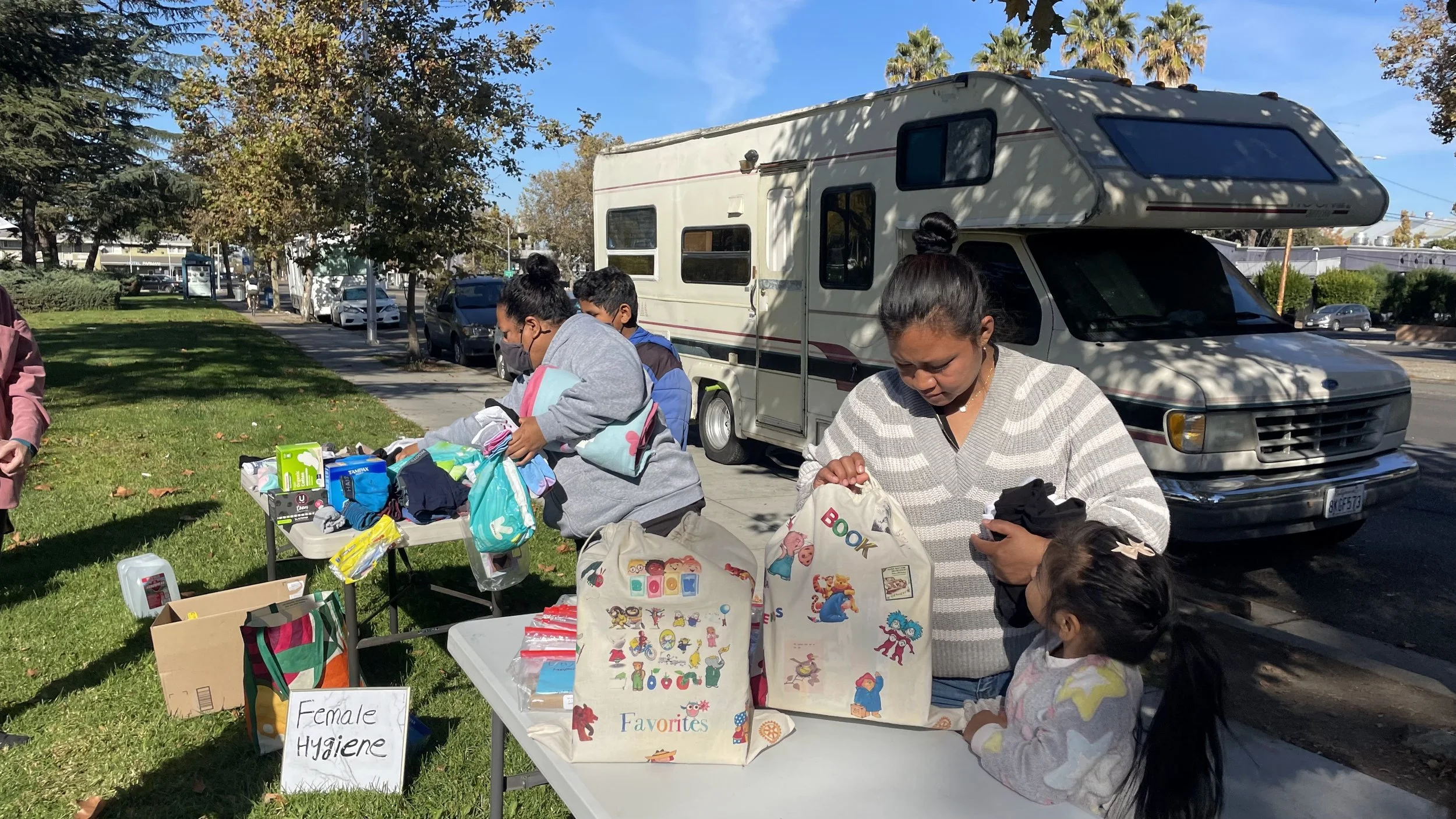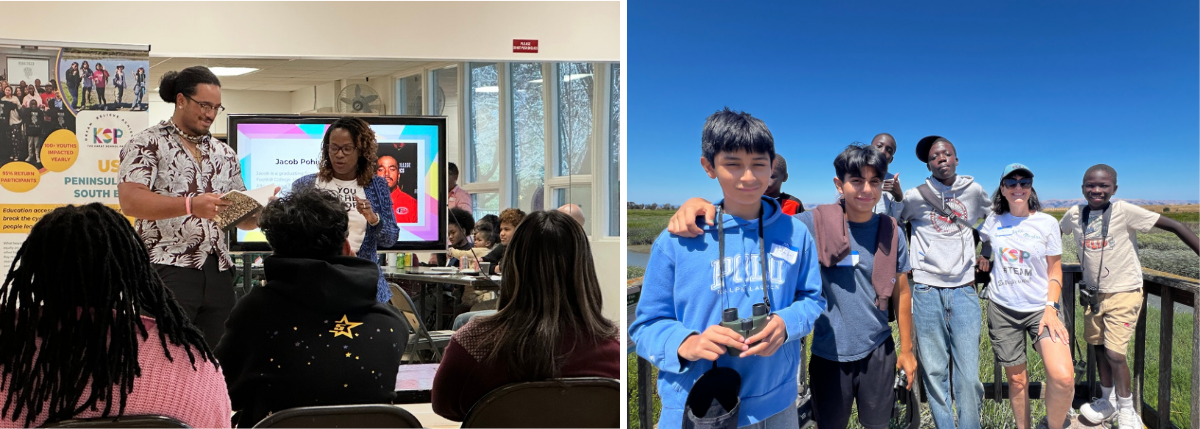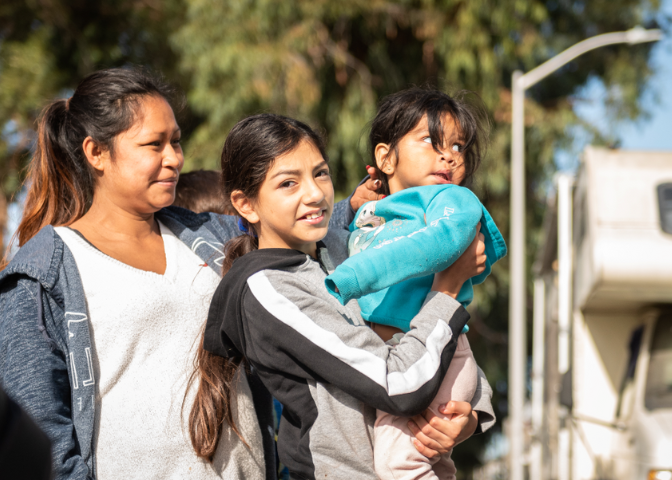RV Living in the Heart of Silicon Valley
In Palo Alto—one of the wealthiest communities in the United States—there exists a reality that too often goes unseen. While many residents live in comfort and privilege, others fight daily battles just to remain part of the community.
The cost of living in the Bay Area is staggering. Families need between $100,000 and $200,000 annually to meet basic needs, with basic rents ranging from $3,000 to $5,000 per month. For those who fall below this threshold, housing isn’t just a financial challenge—it’s a matter of survival.
To keep their children in strong school districts and maintain stability, many families face difficult choices. Some can no longer afford housing in their community, while others must live near their workplace but are priced out of the area. Increasingly, this forces them to reside in cars or RVs parked on the very streets of neighborhoods they cannot afford to live in. Too often, though, these families are viewed not as neighbors in need but as an “inconvenience.” This perception strips away their humanity and widens the gap between privilege and poverty.
That’s where the Karat School Project (KSP) steps in. The KSP is dedicated to giving marginalized families a voice and creating programs that help them succeed despite systemic barriers.
RV families in Palo Alto pick up donated items at a supply distribution drive hosted by the KSP
We had the privilege of speaking with Angel, a youth participant in our Bay Area initiatives. Through the KSP’s EduKits program—launched during the remote learning era in 2020—Angel received essential school supplies, technology, food, gas cards, winter gear, art and STEM kits, college application support, and more. What began as a simple effort to bridge the digital divide has grown into a lifeline for hundreds of students experiencing housing insecurity.
Angel also participates in our Youth Empowerment Story Summit (YESS), where young people connect with successful leaders who share similar backgrounds. She has taken part in Vamos Afuera as well—a free education-equity day camp that offers safe outdoor spaces for exploration, learning, and mental well-being.
Evelyne and a guest speaker at a YESS event (left) and a RV youth smiling at a Vamos Afuera camp (right)
With the KSP’s support, Angel even attended a Palo Alto city hall meeting on RV living—an opportunity to share her perspective and advocate for her community. But the experience was sobering. Instead of focusing on solutions, many attendees described RV residents as an “inconvenience” rather than as neighbors. She entered hopeful, but left realizing that far too often, the conversation centers not on supporting families in crisis, but on preserving the comfort of the privileged.
At the meeting, Angel listened as residents complained that RVs were blocking streets needed for construction crews renovating multimillion-dollar homes—while overlooking the deeper inequities faced daily by families like hers.
Angel also challenged the stigma surrounding RV living. “It’s easier for people to assume everyone here is struggling with drugs,” she said. “But the truth is, most families are simply priced out of the Bay Area.”
For children especially, the emotional and physical toll is heavy: no safe space of their own, no stable routine, and the constant ache of not having a home. Angel described how some of the hardest moments come during the summer heat or during her menstrual cycle—when something as basic as staying clean becomes an exhausting and humiliating challenge. “Almost one out of three of my friends has or is currently living in a car, RV, or shelter,” she shared.
“It’s easier for people to assume everyone here is struggling with drugs. But the truth is, most families are simply priced out of the Bay Area.”
When asked about her future, Angel answered with both hope and determination. Her dream is to one day have an apartment she can truly call her own—one that cannot be taken away. For now, she takes pride in breaking cycles that statistics often predict for youth in her situation. She is not a teen parent, she has not dropped out of school, and she has not turned to drugs. And while college can feel like a dream reserved for the wealthy, she is committed to continuing her education through community college.
Angel is quick to express gratitude for the KSP’s constant support—from help with apartment applications to food and gas cards when her family needed them most.
Stories like Angel’s remind us that housing insecurity is not an abstract issue—it is a daily reality for young people living in one of the wealthiest regions in the country. And while systemic change is essential, organizations like KSP demonstrate the power of community-led solutions. They show young people that they are not invisible, that they are capable, and that their futures are worth investing in.
Because at the end of the day, no human should ever be treated as an “inconvenience.”



